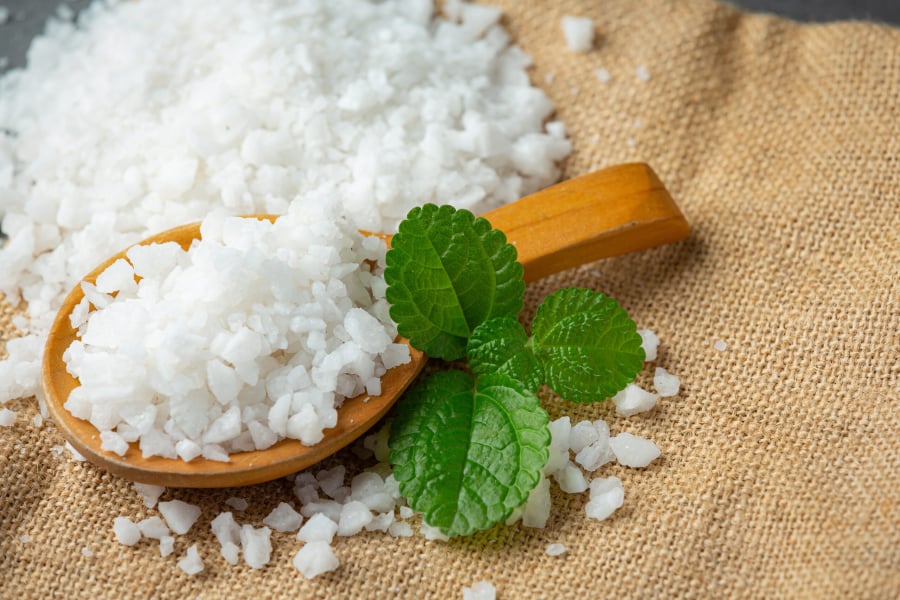Understanding the reasons behind the fishy odor is essential before diving into the tips to eliminate it. The unpleasant smell primarily originates from organic compounds such as trimethylamine oxide (TMAO) present in the fish’s body. When a fish dies, TMAO breaks down into trimethylamine (TMA), resulting in the distinctive foul odor. Additionally, the fish’s living environment, improper storage, and preprocessing can intensify the stench. Knowing this, you can easily apply suitable methods to address the issue.
Use Vinegar
Vinegar is a common kitchen ingredient, not only used for seasoning but also a potent weapon against fishy odors. The acid in vinegar neutralizes odor-causing compounds, quickly eliminating the fishy smell. Simply soak the fish in a diluted vinegar solution for about 10-15 minutes before cooking. Then, rinse it with clean water, and your fish is ready for cooking. This method is not only simple but also preserves the freshness of the ingredient.

Use White Wine
White wine has long been used by the Vietnamese as a natural odor neutralizer. The moderate alcohol content in white wine can eliminate the fishy smell and impart a subtle aroma to the fish. Try soaking the fish in white wine for about 5-10 minutes or use it to rinse the fish directly. After soaking, rinse the fish with water, and the fishy odor will be significantly reduced. This method is particularly suitable for steamed or fried fish dishes, enhancing their flavor.
Use Salt
Salt is not just a seasoning but also a powerful tool in combating fishy odors. The antibacterial properties of salt help remove the slime and odor-causing compounds from the fish’s surface. You can rub salt granules all over the fish, inside and out, and then let it sit for about 5 minutes before rinsing. For better results, combine salt with a little lemon juice. This method not only removes the odor but also cleanses the fish, preparing it for further processing.

Use Ginger
Ginger is renowned for its ability to mask the fishy odor of various foods, especially fish. The essential oil in ginger not only eliminates the unpleasant smell but also adds a warm flavor to the dish. You can grind ginger and rub it on the fish or soak the fish in warm ginger water for about 10 minutes. Additionally, when cooking, add a few slices of ginger to steamed, fried, or braised fish for a completely odorless dish. This tip is favored by many housewives in the North for its convenience and effectiveness.
Use Rice Water
Rice water is usually discarded after cooking rice, but it is actually a wonderful odor neutralizer. The water contains substances that absorb odors and clean the slime off the fish. Simply soak the fish in rice water for about 15-20 minutes, then rinse it with clean water, and you’ll notice a significant reduction in the fishy smell. This method is not only economical but also environmentally friendly, fitting the simple lifestyle of many Vietnamese families.
Use Lemon
Lemon is a familiar ingredient with high acidity, which quickly neutralizes fishy odors. Lemon juice can neutralize odor-causing compounds while giving the fish a fresh feel. Simply squeeze lemon juice, dilute it with water, and soak the fish for about 10 minutes. If you don’t have time to soak, rub the lemon juice directly on the fish and rinse after a few minutes. This method not only eliminates the odor but also brightens the fish, enhancing the aesthetic appeal of the dish.
In addition to the above tips, proper preprocessing of fish plays a crucial role in reducing the fishy smell. Clean the fish immediately after purchasing, carefully removing the internal organs, gills, and the black membrane inside the belly, where the odor tends to concentrate. Rinsing the fish under strong running water helps wash away the slime effectively. More importantly, store the fish properly in the refrigerator if you’re not preparing it immediately, avoiding prolonged exposure to air.
The Miracle of Ginger: 5 Surprising Benefits of Applying it to Your Navel
The belly button, or navel, is often an overlooked part of our body. In Traditional Chinese Medicine, however, the navel is considered a powerful gateway to our health. It is believed that the navel is connected to the Shen Que acupoint, which is linked to 12 meridians and 5 internal organs. So, what are the benefits of rubbing ginger on the navel?





































